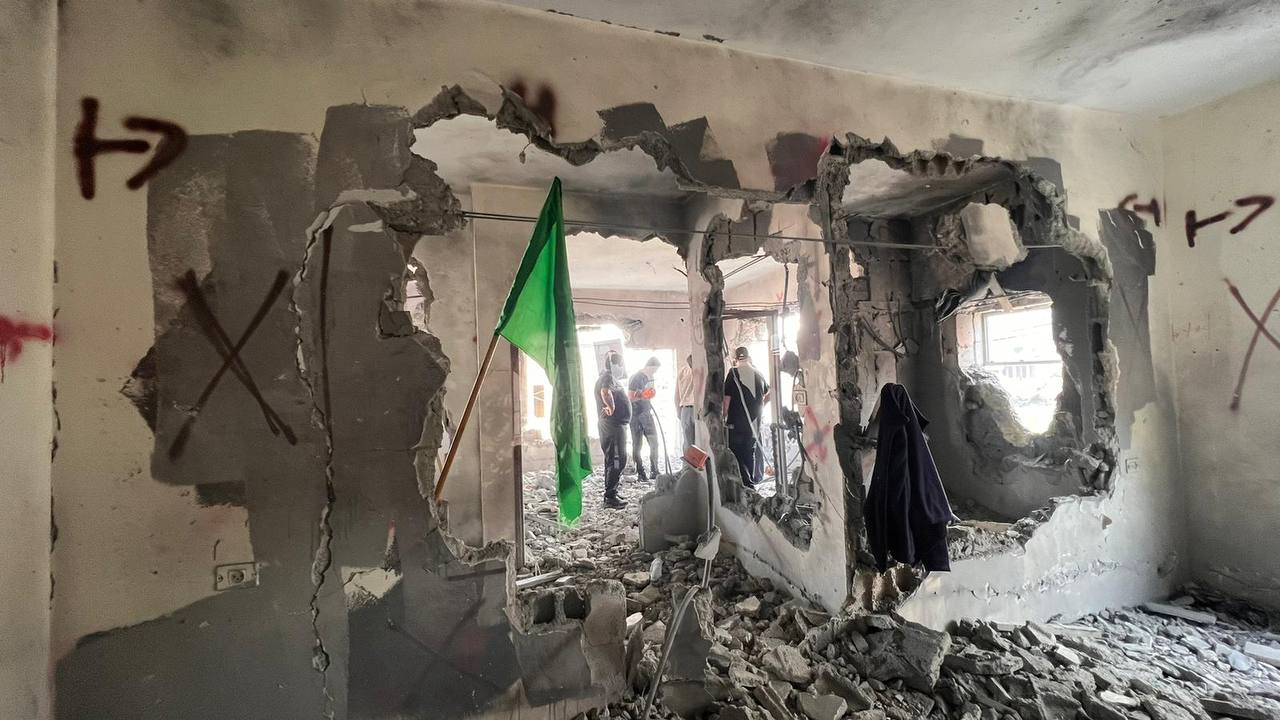Israeli Forces Destroy Home of Palestinian Martyr in Retaliatory Move near Ramallah

Ramallah – Israeli occupation forces carried out a punitive measure on Tuesday morning by demolishing the family home of Moataz Khawaja, a 23-year-old Palestinian martyr from Ni’lin town, located west of the occupied West Bank city of Ramallah. Khawaja was accused of orchestrating a shooting operation in Tel Aviv back in March.
According to local sources, a large number of Israeli occupation forces surrounded Khawaja’s family home late last night, where five family members resided. After forcing the family to evacuate, the forces proceeded to detonate the house, reducing it to rubble.
Moataz Khawaja was fatally shot by Israeli occupation forces on March 9 following allegations that he carried out a shooting operation on Dizengoff Street in Tel Aviv, which resulted in injuries to five Israeli settlers. The operation occurred shortly after Israeli forces had killed three Palestinians near the West Bank city of Jenin earlier that day.
The Israeli occupation has frequently employed the tactic of house demolitions as a collective punitive measure against the families of Palestinians involved in resistance operations. Since 1967, hundreds of homes have been destroyed under this policy, leaving thousands of Palestinians homeless, despite not being personally implicated or suspected of any wrongdoing.
The demolition of homes as a form of collective punishment constitutes a violation of international law. The Geneva Convention explicitly states, “No protected person may be punished for an offense he or she has not personally committed. Collective penalties and likewise all measures of intimidation or terrorism are prohibited. Pillage is prohibited. Reprisals against protected persons and their property are prohibited.”
Critics argue that such practices perpetuate cycles of violence, deepen the grievances between the parties, and hinder the prospects of achieving a peaceful resolution to the Israeli-Palestinian conflict. Human rights organizations and the international community have called for an end to these punitive measures and the respect of international legal obligations in the pursuit of a just and lasting peace.



